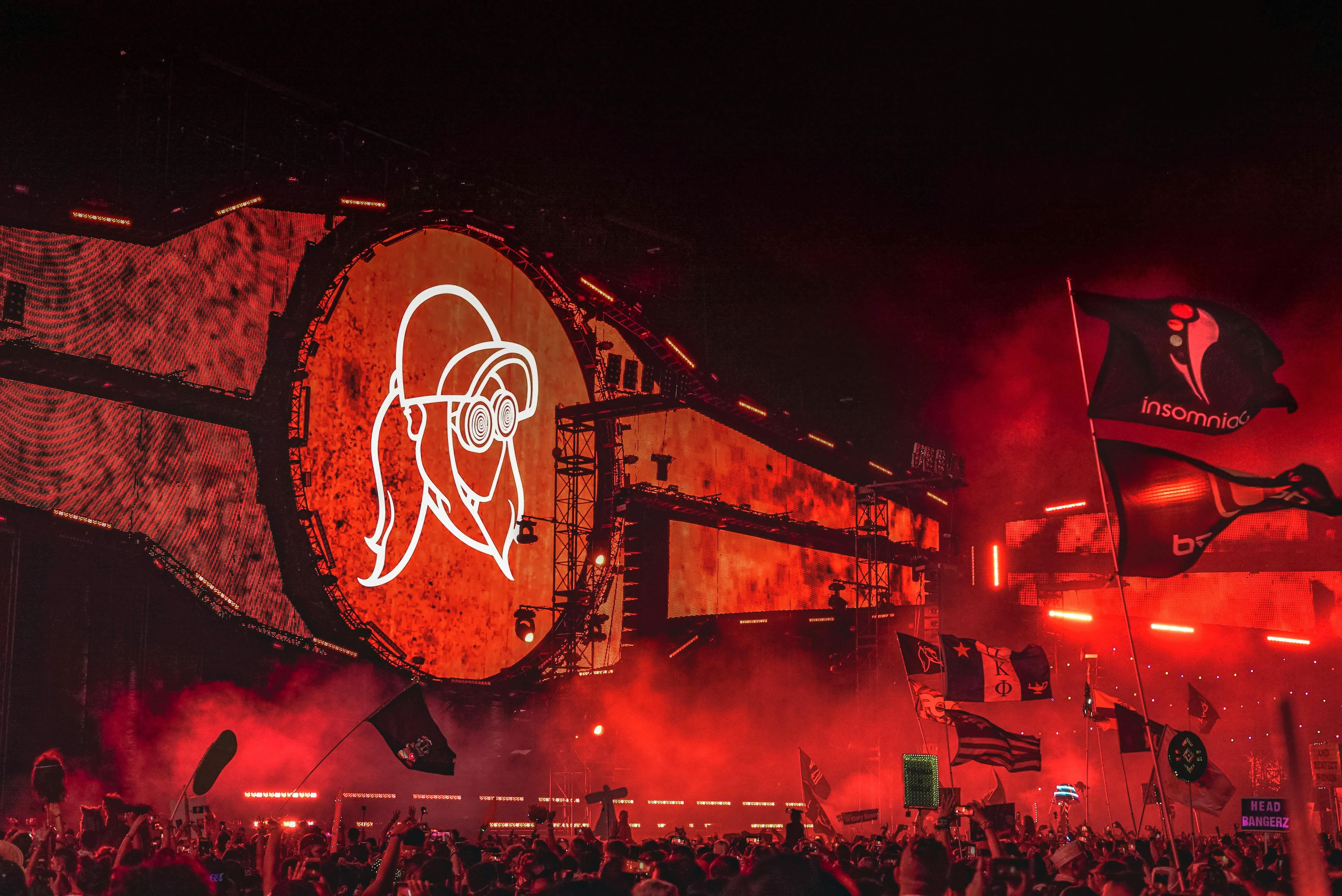The music business has many different departments, each of which plays an important role in the success of a musical artist or group. One such department is the advertising and publicity department, which is responsible for creating and executing effective marketing campaigns to promote an artist’s music and brand. This department works with media outlets, radio stations, streaming services, and other industry partners to raise awareness of the artist and their music. They also create materials such as press releases, posters, billboards, social media posts, and other promotional tools to reach target audiences. The advertising and publicity team also helps manage tours and appearances to maximize visibility for the artist or group.Advertising strategies for music businesses vary depending on the type of music and the target audience. To reach the right people, a business should focus on identifying their target audience and where they spend their time. Once they have identified this information, they can develop a strategy that is tailored to their ideal customer. This may include online advertising such as social media campaigns, search engine optimization (SEO) tactics, and content marketing. Additionally, traditional advertising tactics such as radio and television spots, print advertisements, and even outdoor signage can be effective in increasing brand awareness. It is also important to consider offering incentives such as discounts or giveaways to encourage people to listen or purchase music from the business. By combining both digital and traditional advertising strategies, businesses can reach a wider audience and increase their music sales.
Types of Publicity for Music Business
Publicity is an important part of the music business. It helps to raise awareness about an artist or a band, and can be used to increase sales and generate interest in their music. There are several different types of publicity that can be used to promote a music career, including traditional media outlets such as radio, television, and print publications, as well as newer methods like social media and online marketing.
Traditional methods of publicity are still effective in the music industry. Radio interviews and appearances on television shows can help to spread the word about an artist or a band, while print publications such as magazines and newspapers can provide further coverage. These outlets are often seen as more reliable sources than online ones, so it can be beneficial for artists to pursue this type of publicity.
Social media has become increasingly important for musicians in recent years. Platforms such as Facebook, Twitter, Instagram and YouTube allow them to interact directly with their fans, build relationships with them and share their music quickly and easily with large numbers of people. Posting updates on these sites regularly is an effective way to keep fans engaged with an artist’s career.
Online marketing is another effective way of promoting a musician or band’s work. Creating websites and email lists allows artists to reach out directly to potential fans, while also making it easier for them to track the success of their campaigns. Setting up streaming services on platforms such as Spotify also helps artists reach more people who may not have heard their music before.
Finally, live performances are one of the best ways for musicians to build a fan base and increase exposure for their work. Live shows give fans the opportunity to experience an artist’s music in person and build a connection with them that can last for years afterwards. Playing at festivals or other large events is also a great way for bands to get their name out there.
In conclusion, there are many different types of publicity that can be used by musicians in order to promote their work effectively. Traditional media outlets remain important even in today’s digital age, while newer forms like social media and online marketing should not be overlooked either. Live performances offer musicians invaluable opportunities to connect with their fans directly while also building awareness about their work among new audiences. Overall, understanding all of these different forms of publicity is essential if you want your music career to succeed in today’s competitive market.
Goals of Music Business Advertising and Publicity
The primary goal of music business advertising and publicity is to increase awareness of an artist’s music. This includes raising the profile of the artist, generating new fans, building a brand identity and increasing sales. Advertising and publicity campaigns can also be used to help promote an artist’s live performances or special events. Other goals may include helping to create media attention, increasing radio airplay and securing interviews with journalists or other media outlets.
Advertising campaigns involve placing ads in print, online or on television and radio. Ads can be used to drive people to purchase a product, sign up for a newsletter or attend a performance. Publicity campaigns involve working with media outlets such as newspapers, magazines, radio stations and television programs to increase exposure for an artist’s music. This could include interviews with journalists, appearances on talk shows or having songs featured in TV shows or movies.
Another goal of music business advertising and publicity is to create relationships with key influencers such as bloggers, DJs and tastemakers who may be able to help spread word about an artist’s music. These relationships can also be used to secure press coverage in magazines or other media outlets that may reach larger audiences.
Finally, advertising and publicity campaigns should also focus on developing relationships with fans through social media channels such as Twitter, Facebook, Instagram and YouTube. These platforms can be used to engage directly with fans by sharing news updates or exclusive content that will help build loyalty over time.
Overall, the goals of music business advertising and publicity are varied but all have the common goal of increasing awareness of an artist’s music while strengthening relationships with fans along the way. A successful campaign should involve targeting both traditional media outlets as well as leveraging digital platforms in order to maximize reach and exposure for an artist’s music.
Advertising
Advertising is an important part of the music business. It helps to get the word out about new releases, tours, albums, and other events. Advertising can be done in a variety of ways, including radio spots, television commercials, print ads, and online campaigns. By investing in effective advertising strategies, musicians and music labels can reach a wider audience and generate more interest in their projects. Advertising also helps to build brand recognition and create a positive public perception of the artist or label.
Publicity
Publicity is another important tool for promoting music businesses. Publicity involves generating attention for the artist or label through interviews, press releases, media appearances, social media posts, and other methods. This can help create more buzz around an album or tour and increase visibility for the artist or label. Publicity also helps to establish relationships with journalists and influencers who may be able to provide further coverage down the line. By creating positive publicity around their projects, music businesses can gain more fans and build recognition within their industry.
Benefits
The benefits of music business advertising and publicity are numerous. Effective strategies can help to increase visibility for an artist or label while building brand recognition and credibility within the industry. It can also lead to increased sales of products like albums or concert tickets which will ultimately result in higher profits for the business. Advertising and publicity efforts also help to create relationships with key influencers who may be able to provide further coverage down the line which could prove even more beneficial in terms of increasing visibility for the business.
1. Establish Goals and Objectives
Before you begin developing a publicity plan, it is important to establish clear goals and objectives. Think about what message you want to communicate about your product or service, and what type of response you hope to receive from your audience. Once you have established your goals, you can create an action plan that will help you reach them. It is also important to set measurable goals so that you can track your progress as you implement your plan.
2. Identify Your Target Audience
Once you have established your goals and objectives, the next step in developing an effective publicity plan is to identify the target audience for your message. What demographics are most likely to be interested in what you are offering? Are there any special interests or groups that could benefit from learning more about your product or service? Identifying the target audience will help ensure that the message reaches the right people and resonates with them.
3. Research Your Options
Before determining which methods of publicity are best suited for reaching your target audience, it is important to research all of the available options. What channels of communication will be most effective in delivering your message? What platforms can best reach the people who are likely to be interested in what you have to offer? Take time to research different outlets and determine which ones will work best for achieving the desired results.
4. Develop a Timeline
Once you have identified the best methods for communicating with your target audience, it’s time to create a timeline for implementing each action item included in your publicity plan. When do each of these activities need to take place? Is there a specific timeframe within which they need to be completed? Make sure that all deadlines are clearly outlined so everyone involved understands their responsibilities and knows when each task needs to be completed.
5. Monitor Results
The final step in developing an effective publicity plan is monitoring results and making adjustments as needed based on feedback and performance data. Keep track of how many people respond positively to your message and how many take action after hearing it, as well as any other metrics relevant to assessing its success. Use this information to adjust future strategies accordingly in order to maximize effectiveness over time.

Develop a Target Audience
The first step in maximizing the reach of your music business advertising is to develop a target audience. Knowing who your target audience is and what they are interested in can help you craft messages and campaigns that will resonate with them. You should also consider the age, gender, location, and interests of your target audience when developing campaigns. This can help you tailor content to ensure it reaches the right people.
Find the Right Platforms
Once you have identified your target audience, it is important to find the right platforms to advertise on. Different platforms have different audiences and cater to different needs, so it is important to understand which ones are best suited for your message. Platforms such as social media, streaming services, radio stations and traditional media outlets are all options that can be used for advertising music businesses.
Create Engaging Content
Creating engaging content is key for any successful advertising campaign. Content should be tailored to appeal to the target audience and should include visuals that grab attention. Content should also be interesting and informative so that it encourages engagement from the audience. Additionally, content should be updated regularly so that it doesn’t become stale or outdated.
Measure Results
Finally, measuring results is essential for any successful advertising campaign. Keeping track of impressions, clicks, views, conversions and other metrics can help identify which campaigns are working well and which need improvement. This data can then be used to refine strategies and ensure maximum reach for future campaigns.
Utilize Social Media
Social media is an invaluable tool for promoting a music business brand. Utilizing platforms such as Twitter, Facebook, Instagram, YouTube and SoundCloud can help reach a wider audience and spread word about the brand. Creating engaging content such as music videos, interviews and behind-the-scenes photos can help to build a loyal fan base. Additionally, running competitions and giveaways can be an effective way to encourage people to follow the brand’s social media pages.
Develop Relationships with Influencers
Reaching out to influencers to collaborate on projects or promote the brand can be a great way to generate interest in the music business. Influencers have access to large audiences that may not have been exposed to the brand before so it’s important to establish relationships with them in order to gain exposure for the music business. This could include inviting influencers to events or offering them exclusive previews of new releases or projects.
Create Content for Music Streaming Platforms
Creating content such as playlists and podcasts on streaming platforms like Spotify and Apple Music is another great way of spreading awareness around the brand’s music. The playlists should be tailored towards a particular genre or vibe so that they stand out from other playlists on streaming services. Additionally, creating podcasts which feature interviews with influential figures in the industry can also help promote the brand’s music and create connections with potential fans.
Run Live Events
Live events are another great way of increasing awareness around a music business brand. Running gigs or shows featuring artists associated with the brand is an effective way of getting people interested in its releases and products. It is important that these events are promoted effectively so that they reach as many people as possible – using social media channels such as Twitter and Facebook can help spread word about upcoming gigs or shows quickly and easily.
Creating Compelling Messages for Music Business Promotion
Creating compelling messages to promote a music business can be a daunting task. It requires careful thought and consideration in order to craft messages that will resonate with potential customers and clients. It is important to consider the audience of the message, as well as the tone of voice that will be used in communicating the message. Additionally, it is important to ensure that the message is concise and clear, so as to effectively convey its purpose.
When writing messages for music business promotion, it is important to keep in mind the overall goal of the promotion. Is the promotion designed to increase sales? Or is it designed to create awareness of a new product or service? Once this goal has been established, it will be easier to craft effective messages that will reach and engage potential customers. Additionally, it is important to consider the tone of voice used when writing promotional messages. Different audiences may respond better to different tones; for example, a more casual tone may be better suited for younger audiences while a more formal tone may be better suited for corporate clients.
In addition to considering audience and tone, it is also important to ensure that any promotional message is concise and clear. This means avoiding lengthy paragraphs or complex language that could potentially confuse readers. Instead, aim for shorter sentences using simple language that can easily be understood by intended recipients of the message. Additionally, make sure any key points are highlighted in order to draw attention and emphasize their importance.
By taking these considerations into account when creating promotional messages for music businesses, businesses can maximize their chances of reaching and engaging customers successfully. Crafting effective messaging involves careful thought and consideration; however, by following these guidelines businesses can create compelling messages that will help them achieve their desired goals.

Conclusion
The music business department is responsible for creating advertising and publicity campaigns. These campaigns help to promote the artist and their music and keep the artist in the public eye. This department works closely with the marketing department in order to create successful campaigns that are attractive to fans, potential fans, and potential buyers. The music business department also develops relationships with industry professionals, such as radio stations, blogs, magazines, and TV networks. These relationships can help to increase exposure for an artist or a project. Ultimately, it is the job of the music business department to make sure that an artist’s work reaches its intended audience.
In conclusion, advertising and publicity are essential aspects of a successful music career. The music business department creates these campaigns in order to promote an artist’s work and increase visibility in the industry. The success of these campaigns depends on having strong relationships with industry professionals as well as creating attractive content for potential fans and buyers. Through their efforts, the music business department helps to ensure that an artist’s work gets seen by its intended audience.

Recent Comments